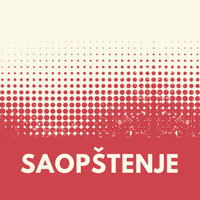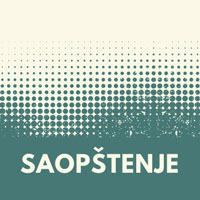


Sorry, this entry is only available in srpski.

 On 16 December 2024, the War Crimes Department of the Higher Court in Belgrade delivered a judgment finding Jovo Jandrić and Slobodan Pekez guilty of the murder of 23 civilians, including 4 minors and 10 women, residents of the villages Čerkazovići and Ljoljići (Jajce Municipality), which constitutes a war crime against the civilian population. Jovo Jandrić was sentenced to 13 years imprisonment, while Slobodan Pekez received a 10-year prison sentence.
On 16 December 2024, the War Crimes Department of the Higher Court in Belgrade delivered a judgment finding Jovo Jandrić and Slobodan Pekez guilty of the murder of 23 civilians, including 4 minors and 10 women, residents of the villages Čerkazovići and Ljoljići (Jajce Municipality), which constitutes a war crime against the civilian population. Jovo Jandrić was sentenced to 13 years imprisonment, while Slobodan Pekez received a 10-year prison sentence.
The judgment established that, late on the evening of 10 September 1992, a group of approximately 10 armed members of the military and police, including Slobodan Pekez, Mirko (Špiro) Pekez, Mirko (Mile) Pekez, Simo Savić, Milorad (Đura) Savić, Zoran Marić, Ilija Pekez, Milorad (Ljupko) Savić, and Blagoje Jovetić, organized and led by Jovo Jandrić, unlawfully detained and forcibly removed Bosniak civilians from their homes in the villages of Čerkazovići and Ljoljići, mostly women, children, and elderly people. Under a threat of death, they confiscated all valuables from the civilians, physically assaulting them with rifles and kicking them, and then transported them to the location known as “Tisovac”. There, the civilians were ordered to line up next to a ravine, after which the perpetrators opened fire and killed 23 civilians.

Sorry, this entry is only available in srpski.

Sorry, this entry is only available in srpski.

Sorry, this entry is only available in srpski.

 On 12 December 2024, the War Crimes Department of the Higher Court in Belgrade delivered a judgment finding Lazar Mutlak, a member of the “Podkamen” Company of the Territorial Defence Srpsko Goražde, guilty of committing a war crime against the civilian population – raping a Bosniak woman under the threat of a gun on 25 May 1992, in the village of Lozje (municipality of Goražde, Bosnia and Herzegovina). Mutlak was sentenced to seven years of imprisonment.
On 12 December 2024, the War Crimes Department of the Higher Court in Belgrade delivered a judgment finding Lazar Mutlak, a member of the “Podkamen” Company of the Territorial Defence Srpsko Goražde, guilty of committing a war crime against the civilian population – raping a Bosniak woman under the threat of a gun on 25 May 1992, in the village of Lozje (municipality of Goražde, Bosnia and Herzegovina). Mutlak was sentenced to seven years of imprisonment.
The Humanitarian Law Center considers that the sentence is overly lenient and that the court gave excessive weight to mitigating circumstances, especially given the nature of the sexual violence, which, as established, left lasting consequences for the victim. Although the court conducted the proceedings efficiently, with the main hearing starting on 13 April 2023, the verdict does not provide adequate satisfaction for the victim, who had waited for justice for over three decades.

 President Nataša Pirc Musar urged the government to fully tackle the worst human rights violation in Slovenia’s history as she honoured the erased, the thousands of people descending from other parts of the former Yugoslavia who were removed from Slovenia’s register of permanent residents in 1992.
President Nataša Pirc Musar urged the government to fully tackle the worst human rights violation in Slovenia’s history as she honoured the erased, the thousands of people descending from other parts of the former Yugoslavia who were removed from Slovenia’s register of permanent residents in 1992.
The erased have been forced to become human rights advocates, having to resort to all domestic and international mechanisms in the fight for the respect of human rights, the president said as she presented them with the award she introduced last year to acknowledge work for human rights.

 A culture of silence exists in Kosovo around the issue of wartime rape, but initiatives like the newly-opened War Rape Survivors Museum in Pristina are trying to make sure the crime and those who suffered are remembered.
A culture of silence exists in Kosovo around the issue of wartime rape, but initiatives like the newly-opened War Rape Survivors Museum in Pristina are trying to make sure the crime and those who suffered are remembered.S.N. perches on the edge of a sofa, her lips trembling as she recalls the events of April 21, 1999, when she was among some 300 women and children rounded up by Serb forces in a school in the Kosovo mountain village of Dragaqine/Dragacin. The words do not come easily.